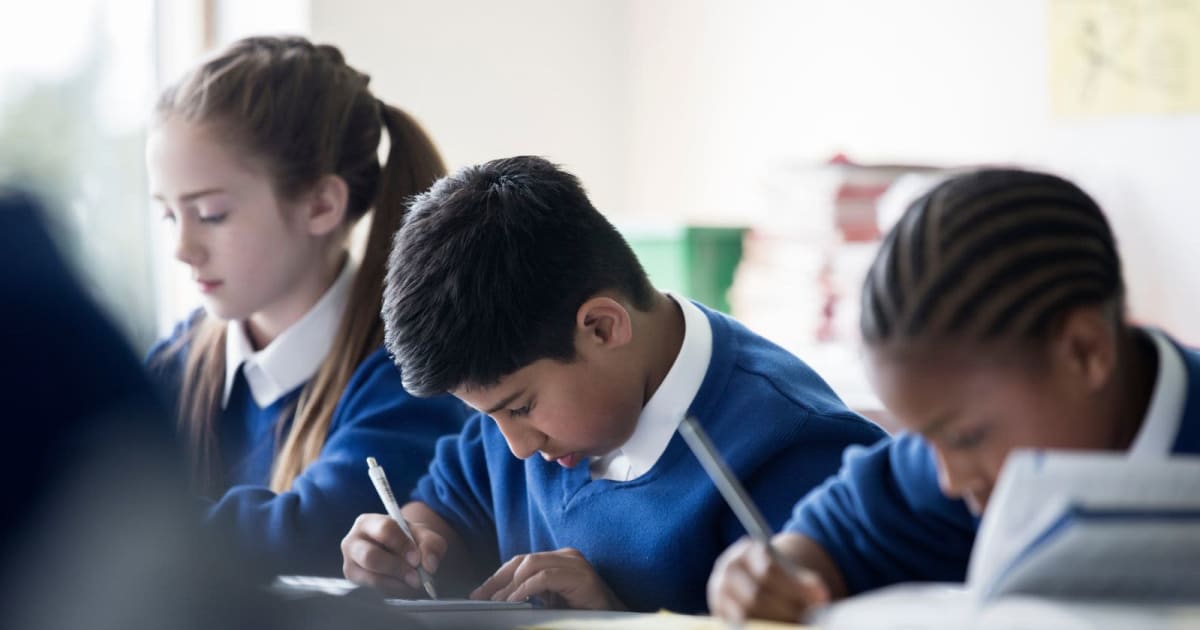A new report highlights an urgent literacy crisis among children and young people in the UK. The findings underscore the transformative potential of targeted literacy programmes, particularly for disadvantaged pupils in deprived communities.
The report from think-tank Pro Bono Economics (PBE) for the place-based charity Right to Succeed, reveals a literacy crisis compounded by increased smartphone use. With nearly a quarter of older children exhibiting behaviours consistent with smartphone dependency, time spent on social media, video streaming, and other digital distractions is displacing traditional reading and skill-building activities.
Millions of children are starting secondary school without age-appropriate literacy skills. A quarter of Year 7 pupils have a reading age below 11, and 1 in 5 primary school pupils fail to meet expected reading standards. These gaps have lifelong consequences. In England alone, 5.1 million adults are functionally illiterate, limiting their career prospects, earnings potential, and overall quality of life.
This issue is estimated to cost the UK economy £80 billion annually, due to welfare spending and lost productivity, according to the World Literacy Foundation.
Economists at PBE evaluated the impact of two community-focused literacy programmes: KS3 Literacy Blackpool and Cradle to Career North Birkenhead. Delivered in areas of high deprivation, these programmes reached over 5,000 pupils, aged 11-14, between 2018 and 2023. In Birkenhead there are only 0.62 jobs for every person aged 16-65. Half of children in North Birkenhead live in low-income households, three times the national average. The disadvantage gap at GCSE level is greater in Blackpool than anywhere else in England.
Key findings from the report ‘Reading the future: the impact of literacy support on disadvantaged pupils’ GCSE grades and beyond’:
Beyond the numbers
While the quantified benefits of the programmes are significant, the report emphasises that these estimates are conservative. Additional benefits, such as improved outcomes in other subjects, better health, reduced welfare dependency, and lower crime rates, were not included in this analysis but are likely substantial.
The upskilling of teachers and school staff involved in these programmes promises a ripple effect of improved literacy outcomes for future generations.
A call to action
The findings underscore the need for continued investment in literacy programmes and more comprehensive data collection to deepen understanding of their impact. The report calls on policymakers, educators, and funders to prioritise interventions like those led by Right to Succeed, which demonstrably transform lives and create a more equitable society.
Danielle Dawes, Literacy Lead at Birkenhead Park School said [on the Cradle to Career Literacy intervention]:
“So many children might be labelled as less smart, which is not the case. They can think and speak; they just haven’t had a voice or a way of using their voice. We have done lots of work on speaking and understanding feelings which are contributory factors to reading.”
Beverly Priestner, Reading Lead at South Shore Academy said [on the Blackpool KS3 Literacy programme]:
“One student during Ofsted was out of his seat volunteering to read Shakespeare, which is like another language; confident and fluent. This was a pupil premium lad who used to be running around the corridors in Year 7 and was consistently withdrawn in class. By Year 8 he was at +14 (literacy assessment score).”
Rachel Gomez, Senior Economist at Pro Bono Economics, said:
“Our report, by economist Sadia Sheikh, provides compelling evidence that targeted literacy support can make a tangible difference for disadvantaged pupils, unlocking future earning potential and reducing societal inequalities. This report focuses on the potential benefits from the impact on young people’s English GCSE score. However, higher literacy levels will likely have a beneficial impact on the ability to better understand and perform better across a range of subjects. The estimated benefit is therefore likely to be substantially higher.”
Crispin Chatterton, Director of Education at Renaissance, whose assessments have been used by Right to Succeed to identify students’ starting points and support literacy interventions throughout the projects, said:
“Students who are weak readers will struggle as much in maths and science at GCSE as they do in English and in arts subjects. It follows that students who have poor reading skills will find it more difficult to access wide swathes of their GCSE courses – and those who lack subject specific language skills, which are difficult to acquire if students don’t have good reading skills, will be doubly disadvantaged. The systematic approach taken by Right to Succeed is having a significant impact – both on the students’ experiences at school and their life chances.”
Graeme Duncan, CEO at Right to Succeed, said:
“Reading is the master skill of education, enabling children to understand what is happening in their lessons and in the world around them. That’s why reading capability is a massive predictor of future education outcomes and future earnings. Yet in low-income communities, children too often start their education behind in reading, and finish their education significantly behind national expectations, reducing their ability to achieve their potential. This is why we’re thrilled to show what our schools and partners in Blackpool and North Birkenhead have been able to achieve through working collectively in a systematic way that has led to them co-creating some amazingly impactful practice. And we’re very grateful to Pro Bono Economics for doing the work to bring this important work to broader attention.”
